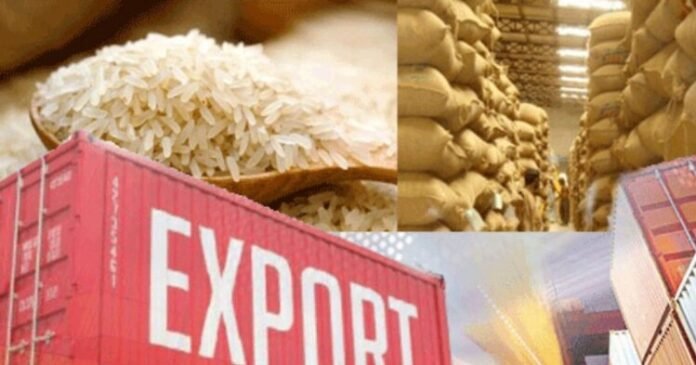ISLAMABAD: The Standing Committee on Commerce, chaired by Mr. Muhammad Jawed Hanif Khan, MNA, convened at the Parliament House to tackle key issues affecting Pakistan’s trade and export sector. The most pressing concern was the alarming disruption in rice exports, with the European Union (EU) flagging 72 Pakistani rice shipments over quality concerns. The revelations have sent shockwaves through the industry, raising fears of a potential export ban.
Ms. Sharmila Faruqui sounded the alarm through Calling Attention Notice No. 20, pointing out that serious lapses in quality control during inspections were the primary cause of these EU interceptions. The Committee condemned the food ministry’s failure to address the issues, prompting the government to propose the formation of a new regulatory body to ensure stringent quality checks. Given that Punjab and Sindh collectively contribute 5 million tons to Pakistan’s rice exports, the Committee stressed the need for immediate action to prevent further setbacks.
Committee member Dr. Mirza Ikhtiar Baig made a shocking disclosure, revealing that the EU had sent over 100 alerts regarding Pakistani rice, citing the presence of counterfeit and adulterated rice in exports. “The market is being flooded with fake materials mixed into rice shipments,” he warned, questioning how such substandard products were passing undetected through inspections within Pakistan.
Ms. Sharmila Faruqui added that the EU had imposed 72 restrictions on Pakistani rice exports in 2024 alone, reinforcing concerns about ongoing quality control failures. She criticized the government’s reactive approach, arguing that the creation of another National Food Safety Authority would do little to resolve the crisis if enforcement remained weak. “Regulatory bodies keep multiplying, but the core issues remain unresolved,” she stated.
Secretary of Commerce Jawad Paul attempted to downplay the controversy, asserting that no official warning had been issued by the EU against Pakistani rice exports. “This issue is being blown out of proportion,” he claimed. However, committee member Khurshid Junejo contradicted this by stating that the EU had indeed issued a warning concerning a rice consignment from Punjab, reinforcing the need for immediate corrective measures.
Despite these alarming revelations, Dr. Mirza Ikhtiar Baig noted that Pakistan had recorded a strong rice harvest and robust export performance this year. Commerce Ministry officials assured the Committee that they were actively working with provincial authorities to enhance quality control, having conducted several high-level meetings to address concerns.
Amidst these concerns, the Trading Corporation of Pakistan (TCP) secured a significant 50,000-ton rice order from Bangladesh, signaling continued demand for Pakistani rice. However, Committee members stressed that unless quality control issues were swiftly addressed, future orders could be jeopardized.
In a decisive move, the Committee resolved to summon representatives from the Rice Exporters Association in the next meeting for a comprehensive briefing. “We need a concrete strategy to safeguard our rice exports,” the Committee Chairman declared.
Beyond rice exports, the Committee also scrutinized broader trade and economic issues. It urged insurance companies under the Ministry’s jurisdiction to ramp up their Corporate Social Responsibility (CSR) contributions and ensure their funds were effectively utilized.
Additionally, the Committee pressed for urgent action to clear the Trading Corporation of Pakistan’s (TCP) outstanding receivables and pending debts, particularly those owed by various ministries and organizations. Members underscored that resolving these liabilities was essential for TCP’s financial stability and operational efficiency.
Regarding defaults by sugar mills, it was disclosed that defaulters had been blacklisted to prevent further financial irregularities.
The Committee also examined the government’s ambitious $60 billion export target by 2029. Several members expressed skepticism, demanding a detailed and actionable roadmap from the Ministry in the next meeting.
The session was attended in person by MNAs Mr. Muhammad Mobeen Arif, Mr. Usama Ahmed Mela, Mr. Muhammad Ali Sarfaraz, Ms. Shaista Khan, Rana Atif, Mr. Muhammad Ahmed Chattha, Gul Asghar Khan, Mr. Muhammad Atif, Ms. Kiran Haider, and Mr. Khurshid Ahmed Junejo. Dr. Mirza Ikhtiar Baig, Mr. Asad Alam Niazi, and Ms. Sharmila Sahiba Faruqui Hashaam participated virtually. The Parliamentary Secretary on Commerce and senior officials from the Ministry of Commerce, NICL, PakRe, SLIC, and TDAP were also present.




